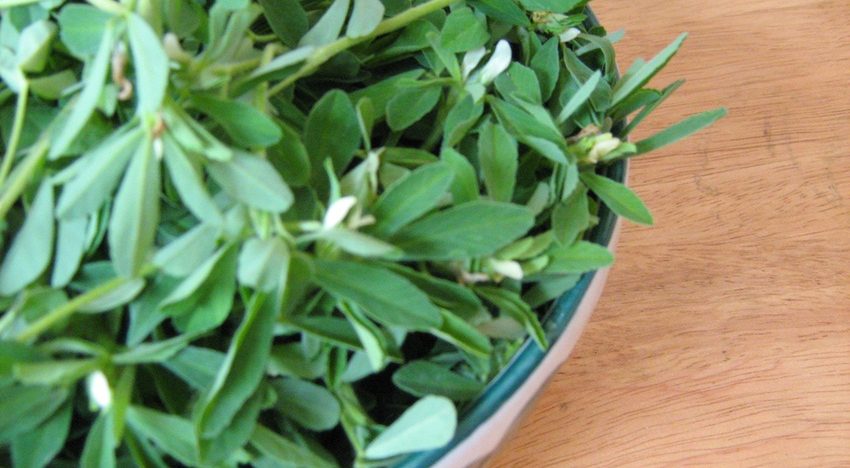Fenugreek leaves are packed with goodness. Photograph by Manidipa Mandal/Flickr
Spinach is the first thing that comes to mind when we’re picking up greens at the grocer’s. Fenugreek leaves have, more often than not, been the second best since they are perceived to be bitter. Fresh methi or fenugreek leaves have a hint of sweetness and a pleasing fragrance that lends itself well to curries and flatbreads, and we’ve even seen fenugreek microgreens used to garnish salads at some of our favourite restaurants too. This is the right seaon to find fresh methi at your local market . Here are a few reasons why your diet can benefit from more fenugreek in all forms – fresh and dried leaves, seeds and sprouts.
These leaves are rich in vitamin A and B, which are essential vitamins that provide nutrients to improve eye sight. Vitamin A also acts an anti-oxidant that boosts the immune system.
Methi also contains iron, which aids in regulating the haemoglobin levels in the blood.
The leaves also help relieve any kind of digestive disorder.
Fenugreek seeds, when soaked overnight in water and consumed the next day, are known to bring down blood sugar levels and prescribed regularly for those prone to or suffering from diabetes.
Regular intake of fenugreek seeds also brings down blood cholesterol levels and prevents high blood pressure.
Dried methi leaves or kasuri methi, which are used to flavour dals and curries, are also bursting with goodness. They reduce inflammation and helps the body fight disease.
A winter green, methi arrives in the market just in time to beat all kinds of respiratory infections. Fenugreek leaves are known to help ease conditions such as bronchitis, sinusitis and coughs. The water that methi leaves have been boiled in is used for gargling and help treat a sore throat.










